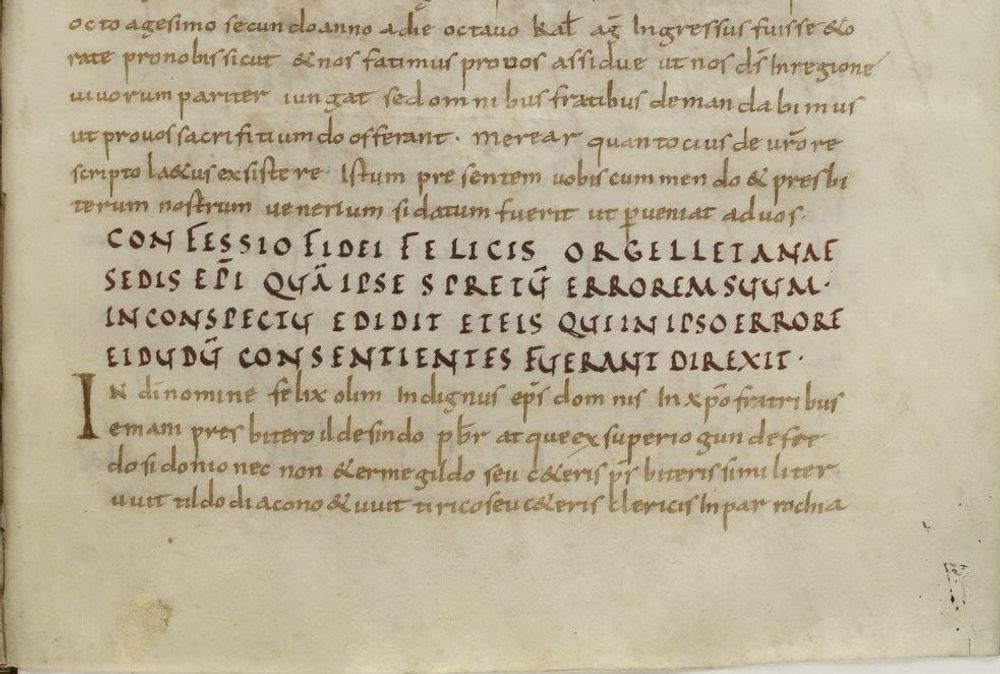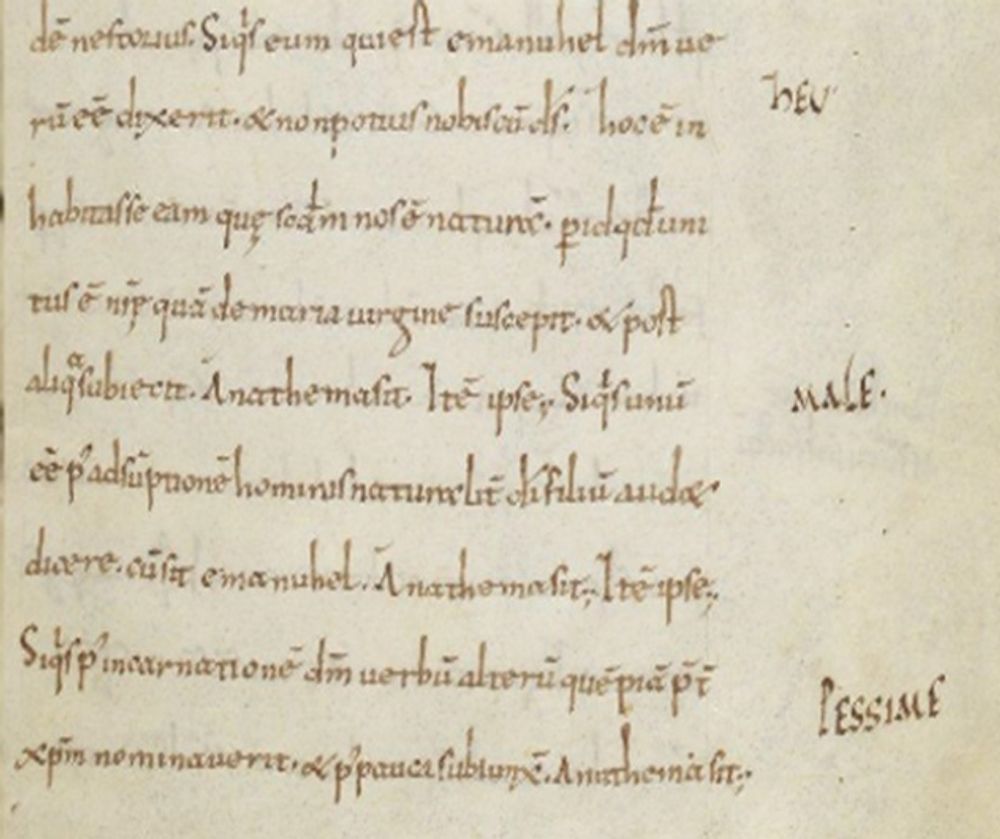Debate on adoptionism: aftermath
Did Felix change his views?1
After his defeat in Aachen, Bishop Felix was not allowed to return to his see in Urgell, but was entrusted to the custody of the Archbishop of Lyon. He was made to write a confessio, in which he disavowed his adoptionist teachings and professed his orthodox faith. Felix distanced himself from the teaching of Nestorius and anathemized his heresy. He promised never to use the contested term ‘adoptivus’ again. This profession of faith was sent to his canons in Urgell, and via them to those in his network who still adhered to so-called adoptionist views.
Felix’s confessio is preserved in a ninth-century manuscript produced in Reims (Reims, BM, ms. 385). The rubric heading the confessio reads: “Profession of faith of Felix bishop of the see of Urgell which he brought forth himself to spurn his error.”

https://gallica.bnf.fr/ark:/12148/btv1b8448999w
But did Felix really have a change of heart? After Felix’s death, his custodian, Archbishop Agobard of Lyon (r. 816-840), found a pamphlet in his room in which Felix defended his old teaching. Agobard was shocked. So the old heretic had not converted to the true faith after all! Agobard wrote a treatise Against Felix in which he combatted Felix’s views and integrated (or paraphrased) sections of Felix’s pamphlet. Agobard’s treatise Against Felix has been transmitted in manuscript Paris, BnF, lat. 2853 (Lyon, ninth century). In the margin of folio 7r, a reader expressed his disapproval of Felix’s teaching: “HEU” “MALE” “PESSIME”.

https://gallica.bnf.fr/ark:/12148/btv1b8572244q
Yet in a way, Felix had kept his word. In none of the fragments of his pamphlet, the term ‘adoptivus’ occurs, which Felix had vowed never to use again. He had simply rephrased his teaching, without the forbidden word.
Contribution by Irene van Renswoude. I thank Janneke Raaijmakers for her critical reading and always excellent suggestions for my contributions.
Cite as, Irene van Renswoude, “Debate on adoptionism: aftermath”, The art of reasoning in medieval manuscripts (Dec 2020), https://art-of-reasoning.huygens.knaw.nl/aftermath. ↑


 Next Read:
Next Read: